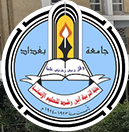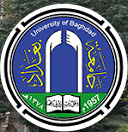Abstract
Ahmad Shawqi led his words and his letters reigned as Persians to her knight, he was crowned King, and he was crowned Emir. The tribe was Arab if a poet came to congratulate the tribes, because it was the protection of their symptoms, immortalization of their monuments, mention of them, and they congratulated only a boy born, a poet who grew, or a horse who produced "known for his patriotic attitudes that affected him. His homeland carried a bleeding wound and wounded his pen with a patter sword. He was fined in Damascus and fiancée and ha. He was the fiancée's yes in her grief, her unity and her struggle against her enemies, who desecrated her soil and excelled. He stood in the wall of Azbakiyah in 1926 on an occasion dedicated to helping the people of Syria after their land was bombed and destroyed. He created his poem "Damascus Nakba", in which his feelings were manifested by genuine sincerity, the monolith of powerful meanings, without cost, live, beautiful, expressive by rhetorical artistic methods, and a university between news and creation. . The results of the study are: The poem “The Nakba of Damascus” is a poem full of patriotic and national meanings, through which we discover the true personality of the Prince of Poets, and hi national concern. Likewise, the poem “The Nakba of Damascus” is considered a true historical document through which it embodies the history of Syria and transmits it faithfully, with its honorable, distant past – and the painful relative, who embodied the Nakba in all its forms from the greed of the invaders and the pity of the French, as well as the courage and strength of its people.
Article Type
Article
First Page
16
Last Page
39
Publication Date
6-15-2023
Creative Commons License

This work is licensed under a Creative Commons Attribution 4.0 International License.
Recommended Citation
Square, Sultan Saeed Abu Dabil
(2023)
"Artistic Construction and Rhetorical Styles in the Poem of the Catastrophe of Damascus by Ahmad Shawqi,"
Alustath Journal for Human and Social Sciences: Vol. 62:
Iss.
2, Article 2.
DOI: 10.36473/ujhss.v62i2.2062
Available at:
https://alustath.researchcommons.org/journal/vol62/iss2/2










